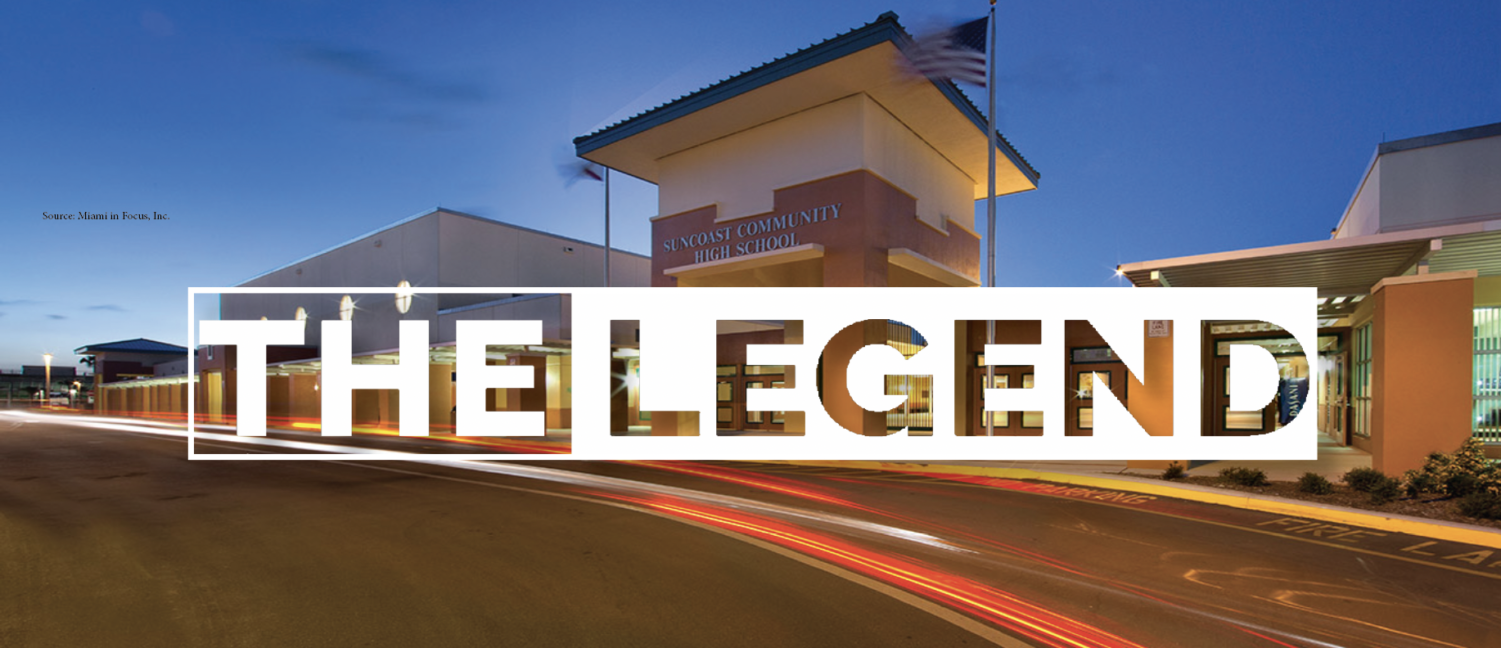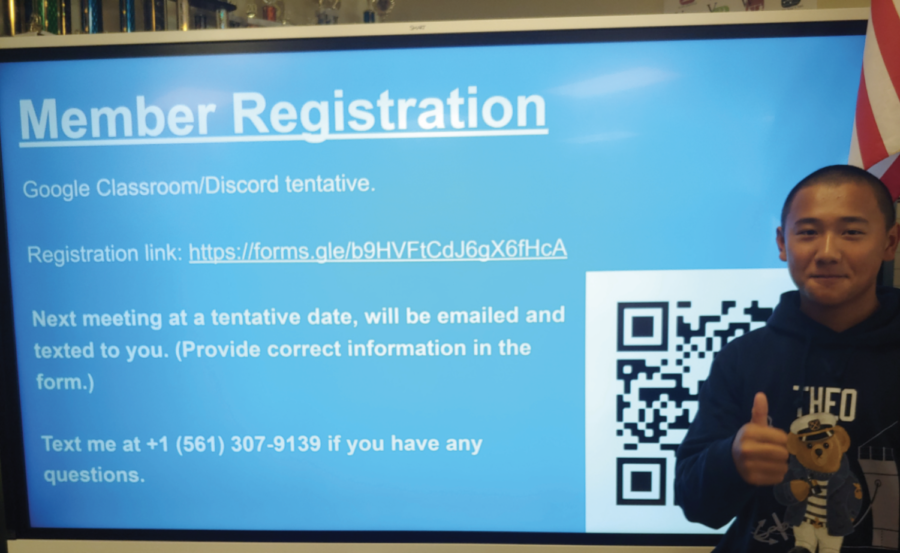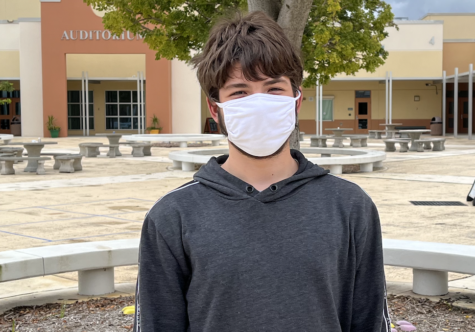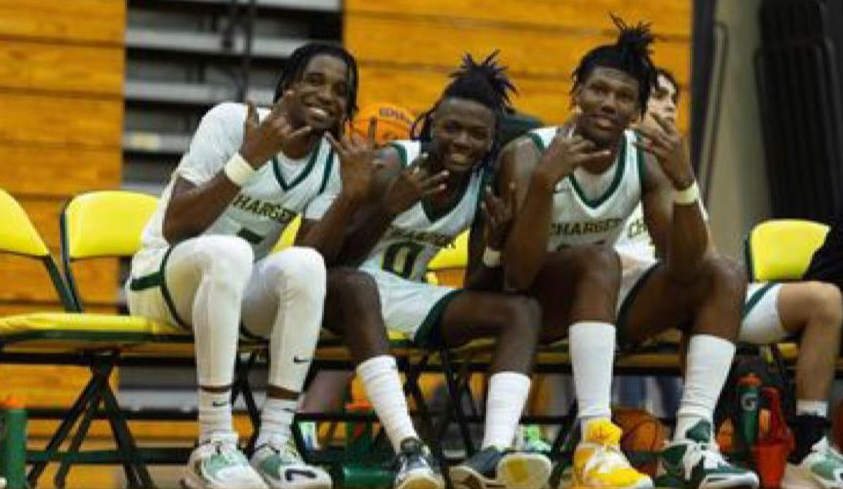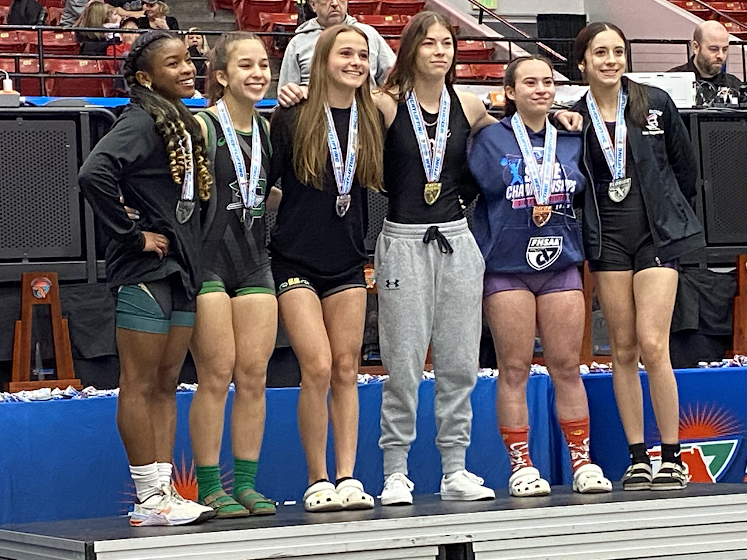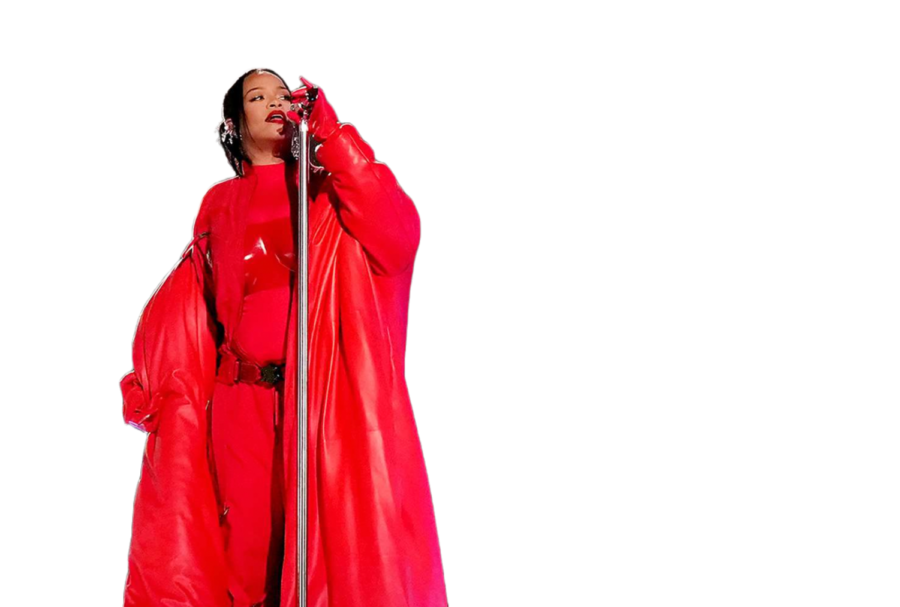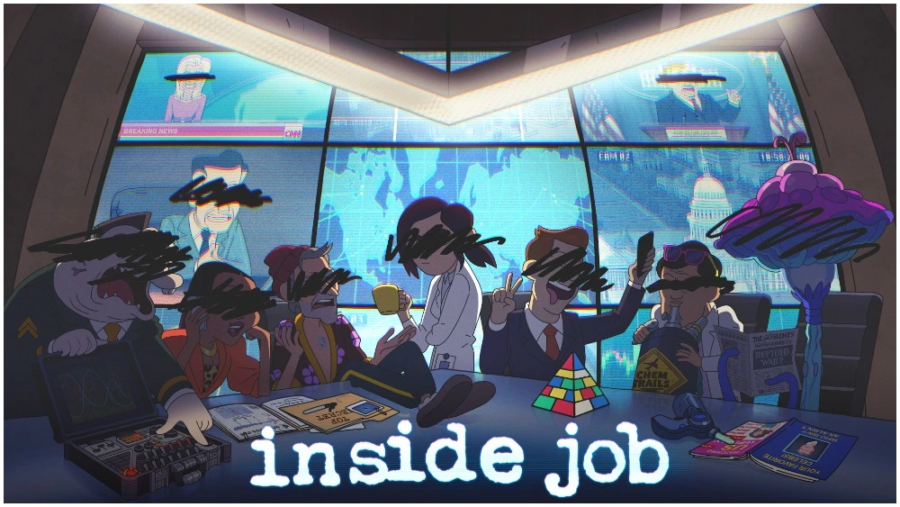Three, Two, One, Blast Off!
Suncoast has a new space-oriented club, the Aerospace Club.
Ouyang gives a presentation about the Aerospace Club at the first meeting.
April 15, 2022
Everyone has interests in our physical world, be it the forests, mountains or oceans. Some people are even interested in things outside our planet, such as Theodore Ouyang, 14. Ever since he was in grade 5, Ouyang was astonished by the reaches beyond Earth. It is no wonder why he joined the MSE program to learn more about both hardware and software. Now, in his sophomore year, he unofficially created the Aerospace Club, sponsored by pre-calculus teacher, Elizabeth Pearson.
“I started the club because I’ve been working on aerospace work for a while,” Ouyang said.
Not surprisingly, the Aerospace Club is focused on technology about aviation and space. Ouyang’s current project is protecting chips in a satellite’s payload from the elements. If exposed to something such as liquid, heat or electricity, a single event upset could occur. A single event upset is when an error in the binary coding of a chip occurs. In binary, ones and zeroes are used. During a single event upset, a one could be switched to a zero, or a zero could be switched to a one. This could drastically change how a program works. For example, if a single event upset occurs during a space launch, an engine could fail. Ouyang knows that this is a serious problem, which is why he is dedicated to finding a way to keep the chips safe in flight.
“I’ve been working on this project for a while, and we’ve finally secured a flight,” Ouyang said.
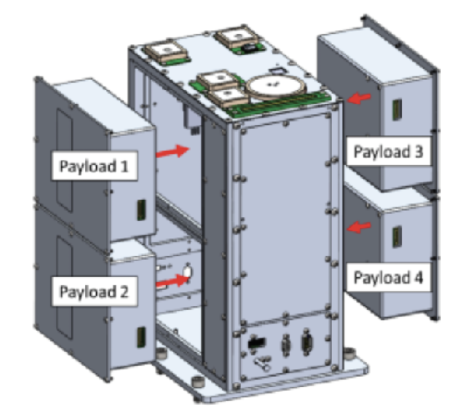
The chips that the Aerospace Club will be testing with are called micro:bits. They were created by the British Broadcasting Corporation for educational purposes, and Ouyang wants to see how they hold up. To do this, the Aerospace Club hopes to launch the FlipSat-1, into low orbit, roughly an altitude of 100 miles to 620 miles, in December this year. The satellite is being funded by donations and by WolfPack Orbital Launch Funding Competition, a company that provides funding for space related projects. Thanks to them, Ouyang has over $20,000 for the project. Using this money, Ouyang has developed three different protective measures. For the first group, the micro:bits in the Flip-Sat1 will be covered in a layer of polyethylene, a material used in most common plastics, to see if a cheap material can protect the computer data. In the second group, the micro:bits will be monitored by error-correcting code, which automatically fixes a change in code. Finally, the last group will be accompanied by a watchdog timer, an algorithm that recovers and resets modified code to get it back to its original state. The results will be recorded by measuring radiation and single event upset occurrences. It will be then transmitted down to Earth, where the results will be compared to see which method is the most effective.
“If the first satellite is successful, there’s no doubt that we will do things larger than satellites or other projects, like high altitude balloons, and work with agencies and companies. I’m excited to see that happen. I’m also very excited to work with such a large amount of great students on this project,” Ouyang said.

